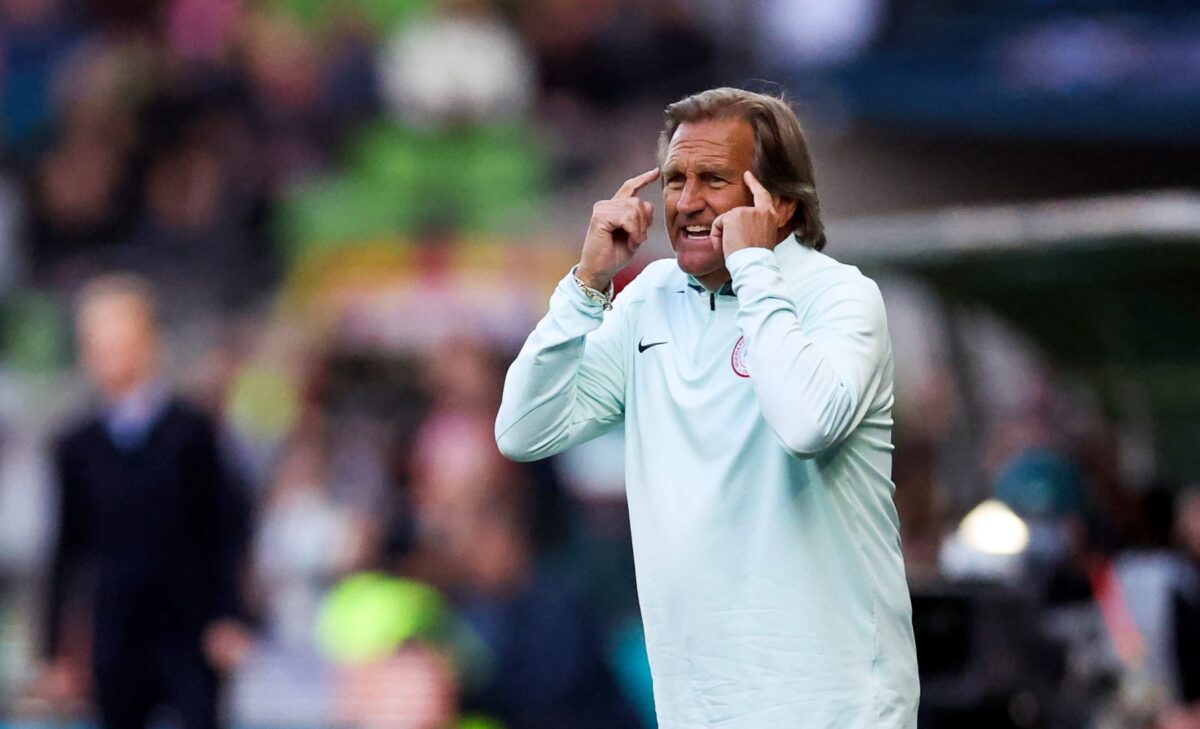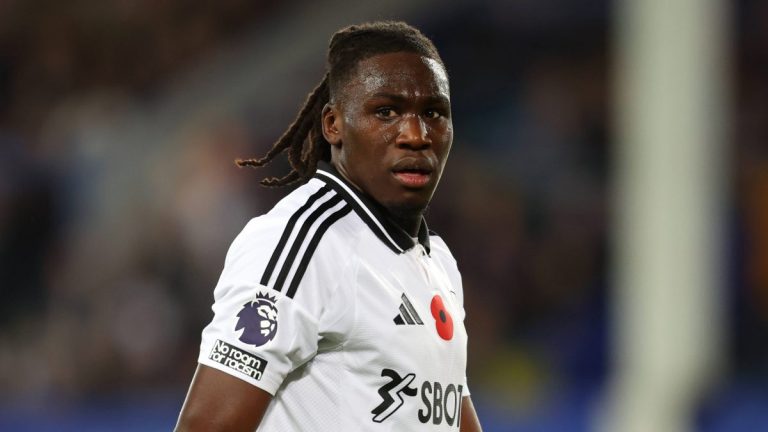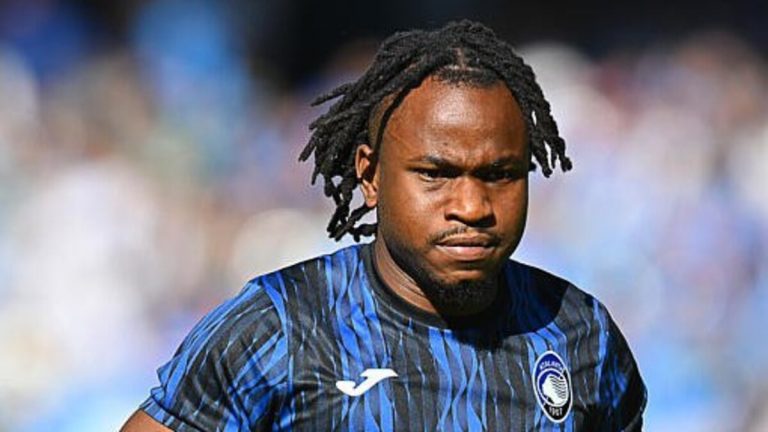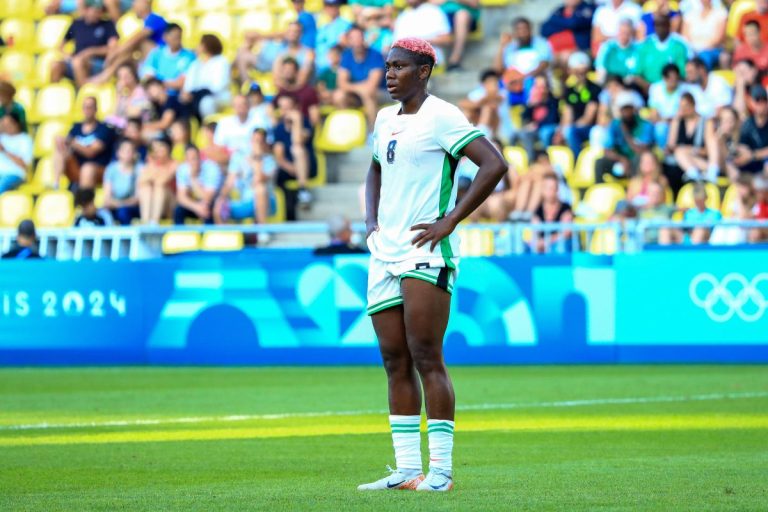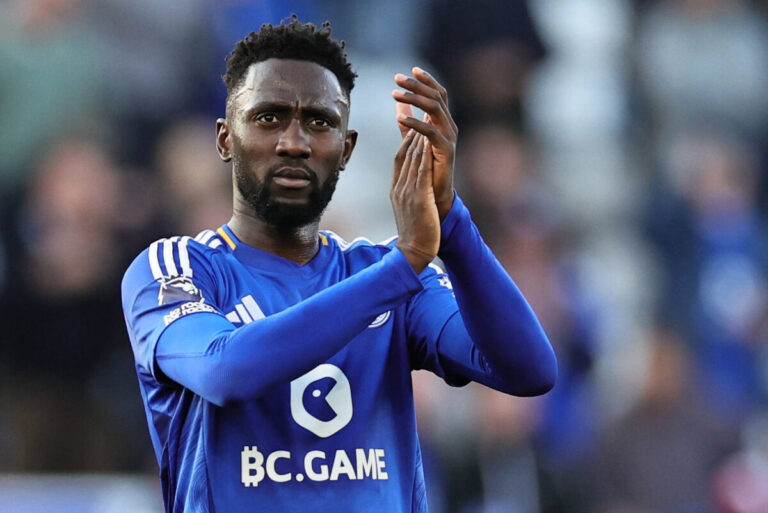South Africa missed the opportunity to take a giant leap towards securing qualification to this year's Summer Olympics thanks to a spirited performance by the Super Falcons of Nigeria.
Entertainment was not on the menu as both sides lacked the intensity in what was a typical final play-off game at the Loftus Versfeld Stadium on Tuesday.
The Super Falcons went into the game with a solitary 1-0 lead from the first leg and did everything within their reach to ensure they would not surrender that lead. Their efforts were rewarded as they booked their place at the Olympic Games for the first time since 2008.
With this result, the Super Falcons will join Group C according to the draw outcomes. Group C is comprised of the reigning world champions Spain, two-time Olympic silver medalists Brazil, and London 2012 silver medalists Japan.
Here, we look at where the South Africa vs Nigeria game was won and lost.
Christy Ucheibe repeats the job on Thembi Kgatlana
Calm, assured, and a leader. Three words you wouldn't normally find yourself writing about Christy Ucheibe. But on Tuesday, she was all three and more.
The talent has always been there for Ucheibe, but so often in big games, it has been her mind which lets her down. Not last night, though, as she put in one of the best displays in the Nigerian shirt in yesterday's stalemate with South Africa.
The converted midfielder, slotted into midfield to cover for the unavailable Blessing Demehin, was key to stopping the threat of Thembi Kgatlana, who never got the chance to run at the Nigerian defence. This was reminiscent of what happened in the reverse fixture a few days ago in Abuja.
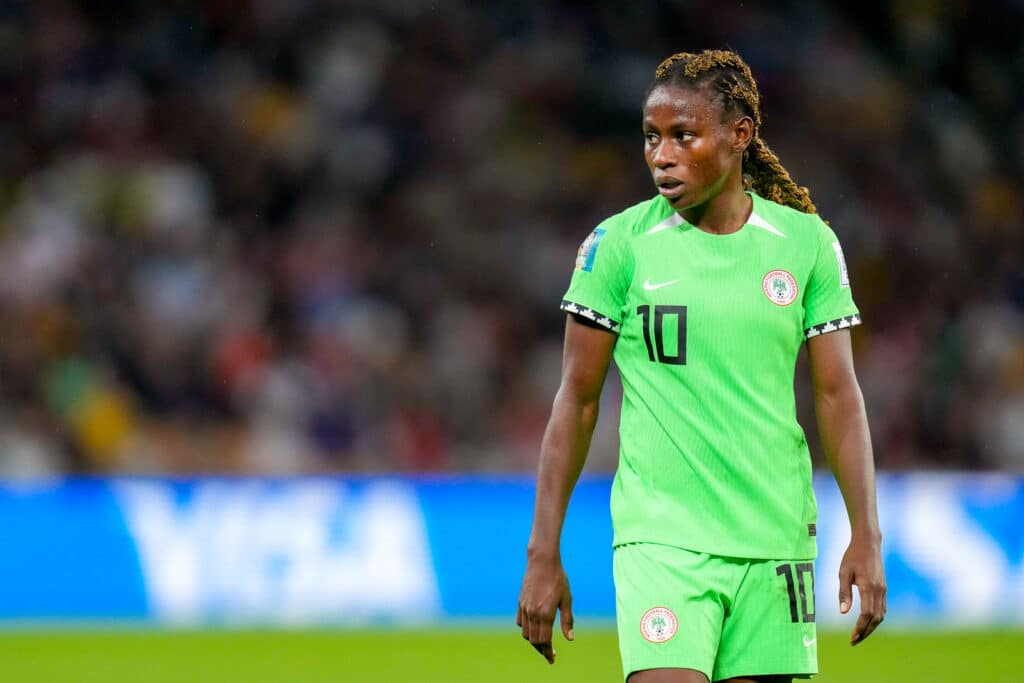
Not many players can claim to have kept Kgatlana in their pocket during their career. Ucheibe consistently snuffed out Banyana Banyana's relentless threats, reading the game brilliantly and making a number of vital interventions, whether through blocks or clearances.
By the time the second half reached its midway point, South Africa enjoyed the better part of possession and chances, but they hadn't truly threatened the Super Falcons.
Aggression in midfield
Nigeria's midfield duo of Deborah Abiodun and Halimatu Ayinde got in South Africa's faces all game long, not allowing them to get into a rhythm.
Whereas Nigeria got back into a disciplined shape very quickly, and so made it difficult for Desiree Ellis' side to play through.
South Africa were remarkably naive in their set-up when in possession. As such, they lacked structure whenever the ball was turned over, which was a lot of times, especially in the first half.
This made Nigeria's counters seem almost inevitable: the only barrier to goals was the decisions of the forwards, who at times suffered from having too many options to choose from.
The contrast could not have been starker. Despite South Africa managing to breach the midfield on a couple of occasions, the relentless aggression of Abiodun and Ayinde ensured the South Africans' efforts were fruitless.
Sticking to the plan
Heading into the game, the Super Falcons needed to show their teeth from the off. But their manager urged caution from his side; he wanted a cool, calm calculated display all round, something that would contrast his recent approach to games.
Fully aware of South Africa's attacking threat, Nigeria held back on going for the jugular, thanks to Waldrum's tactics, which were interpreted with discipline and dedication by the Super Falcons. This included rejecting the temptation to get over-excited in the latter stages, preferring sensible possession over opening themselves up.

